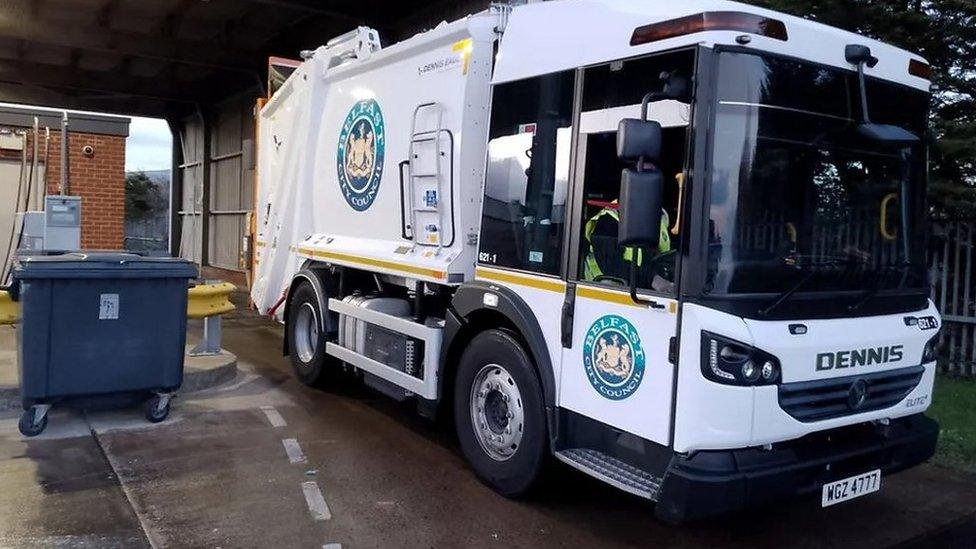Preston campaigner backs council's food waste collection plan
- Published
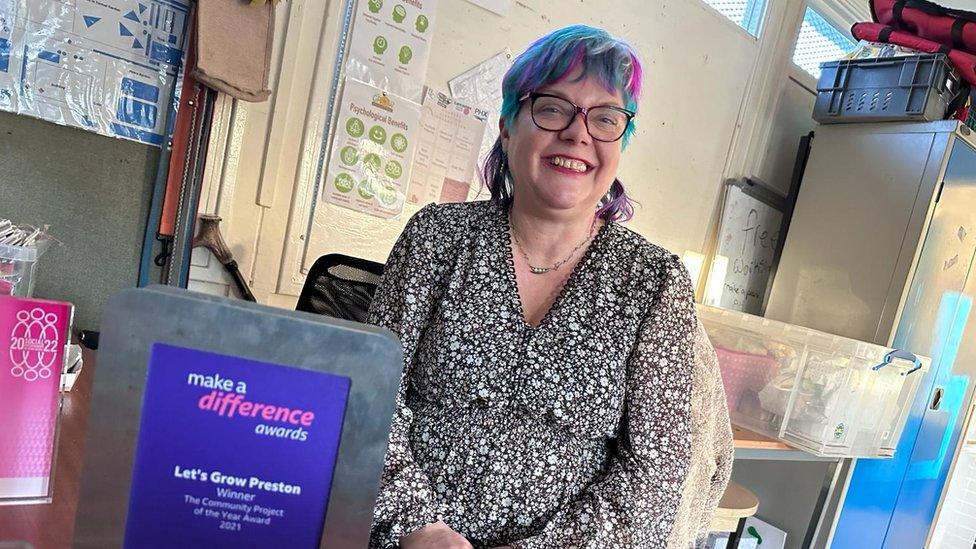
Long-time food waste campaigner Annie Wynn has welcomed Lancashire County Council's food waste plans
A food waste campaigner has backed a council's plan to introduce weekly food waste collections from early 2026.
Residents in Lancashire will be able to dispose of food waste, which will then be converted into electricity to power the waste facility.
Annie Wynn, from Preston, said the plan would be "useful for those who don't have their own composting system".
About 40,000 tonnes of food waste would be collected each year, Lancashire County Council (LCC) said, external.
It comes as the government recently announced plans to reform recycling in England.
In Lancashire, existing equipment will be refurbished at a waste site in Leyland so the food waste can be processed, the council said.
A process called anaerobic digestion, that turns the leftover food into gas, would be used at the waste recovery plant.
This gas would then be converted into electricity, which would help power the facility.
But a previous similar scheme by Preston City Council was ended in 2015 after a decade because it was considered to be too costly to maintain.
Ms Wynn, the chief executive of Let's Grow Preston community group, external has welcomed the proposed changes.
She said the scheme, if the council "get it right", could be "absolutely fantastic".
Councillor Shaun Turner, cabinet member for Environment and Climate Change at LCC said: "Converting household waste into electricity will save £6.3m a year. We plan to make the best use of the separately collected food waste using the facilities that we already have."
Ms Wynn added it was a "sustainable" move, but had cautioned "it is going to consume a lot of energy".
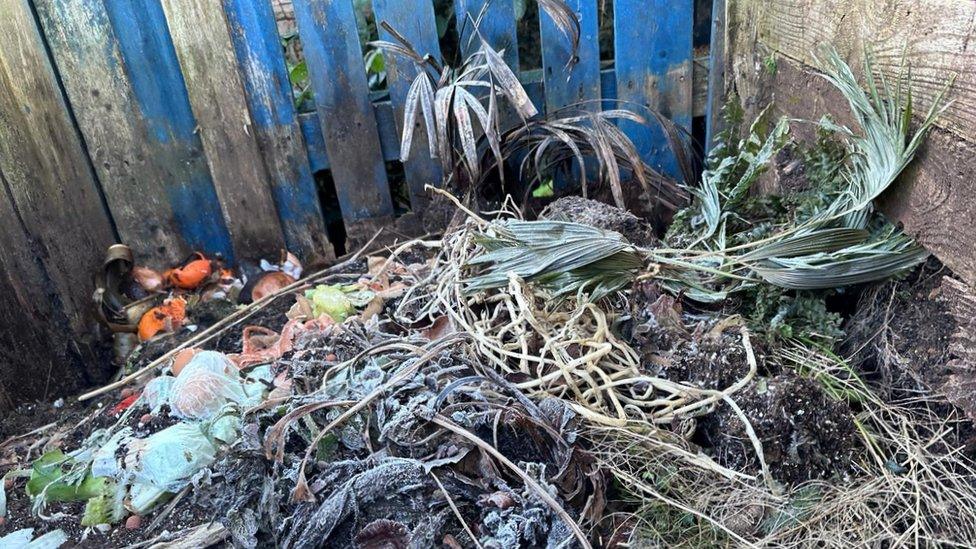
Let's Grow Preston takes people's food waste and turns it into compost
Ms Wynn's Let's Grow Preston community organisation is based in Ashton Park. It won BBC Radio Lancashire's "Best Community Project" award in 2021.
People can arrange for their food waste to be turned into compost by the project.
They take a mix of kitchen waste and "paper, haircuts, and toenail clippings".
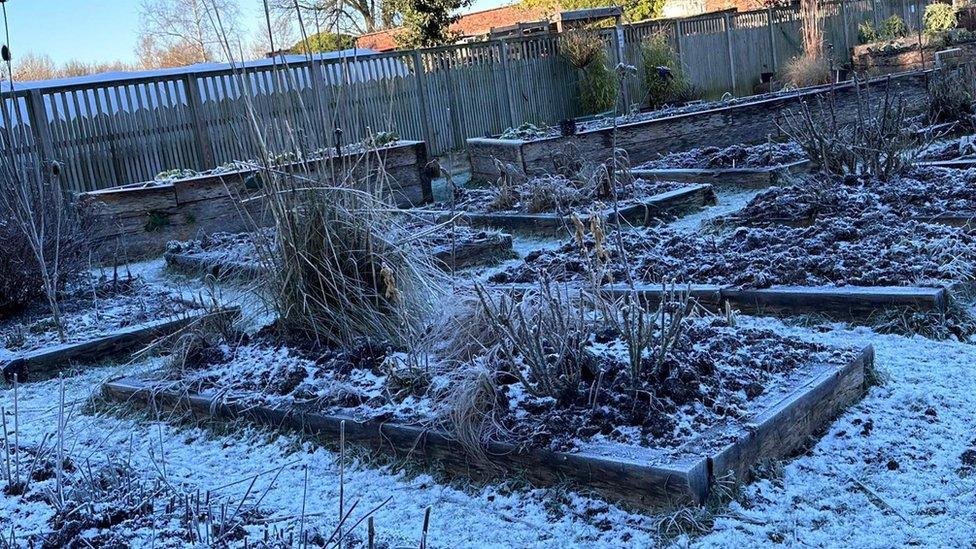
Raised beds now sit on what was once part of Ashton Park's bowling green
The compost generated is then used in plants sold by the group or in raised beds that sit on what was once the bowling green at the park.
Let's Grow also collects surplus food from people who have allotments and turns them into meals for the local community during the school summer holidays.
Last year, it collected enough food to create 17,000 meals.
The UK produces around 9.5 million tonnes of food waste a year, according to a report by the charity Waste and Resources Action Programme.
If you want to reduce food waste you could "write out a plan of what you're going to cook that week and only buy what you need", Ms Wynn said.
For people who want to recycle their food waste before the countywide scheme begins, she advises they do so by using a food waste fermenter and then taking it to a local compost maker, if they do not have the space to compost at home.
- Published19 January 2024
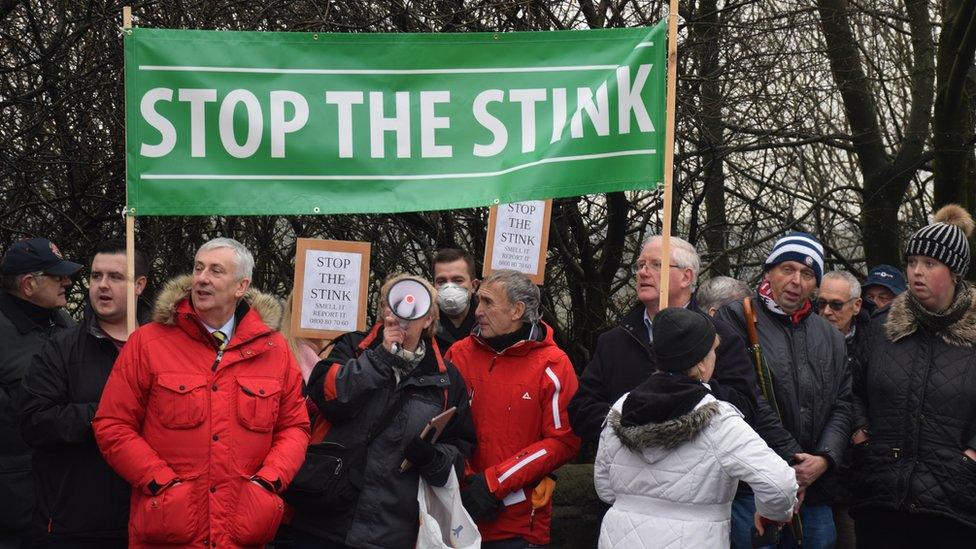
- Published11 January 2024
